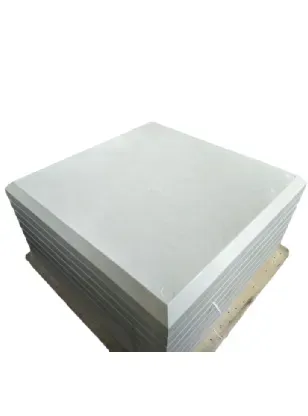loading...
- No. 9, Xingyuan South Street, Dongwaihuan Road, Zaoqiang County, Hengshui, Hebei, China
- admin@zjcomposites.com
- +86 15097380338
- Welcome to visit our website!
High-Quality Fiberglass Water Containers | Durable & Lightweight Solutions
Exploring the Benefits of Fiberglass Water Containers
In recent years, fiberglass water containers have gained popularity as an efficient and versatile solution for water storage. These containers are made from a composite material consisting of glass fibers and resin, which provides several advantages over traditional materials such as metal or plastic. This article delves into the numerous benefits of fiberglass water containers and why they are becoming a preferred choice for residential and commercial applications alike.
One of the primary benefits of fiberglass water containers is their durability. Unlike plastic, which can warp or crack under extreme temperature fluctuations, fiberglass is exceptionally resilient. It can withstand harsh environmental conditions, including intense sun exposure and freezing temperatures, without degrading. This durability makes fiberglass an ideal choice for long-term water storage solutions, particularly in regions with fluctuating climatic conditions.
In addition to their durability, fiberglass containers are known for their lightweight nature. Compared to metal tanks, which can be cumbersome and difficult to transport, fiberglass containers are much easier to handle. This characteristic is especially advantageous for construction sites or remote locations where transporting heavy materials can be challenging. The lightweight design does not compromise strength, allowing these containers to maintain structural integrity even when full.
Another significant advantage of fiberglass water containers is their resistance to corrosion. Metal tanks are prone to rust and corrosion, especially when exposed to water over time. In contrast, fiberglass is unaffected by these issues, ensuring that the water stored within remains uncontaminated. This quality is crucial for maintaining the purity of drinking water, making fiberglass containers an excellent option for both household and agricultural use.
fiberglass water container

Moreover, fiberglass water containers are often designed with insulation properties that help maintain the temperature of the stored water. This feature is particularly beneficial in hot climates where water can become uncomfortably warm. By minimizing temperature fluctuations, fiberglass containers enhance the quality and usability of the water, making it more refreshing and palatable.
From an aesthetic perspective, fiberglass water containers come in various colors and designs. This versatility allows them to blend seamlessly into different environments, whether in a garden, backyard, or commercial setting. Their modern appearance can enhance the overall aesthetics of the space, making them a visually appealing option for water storage.
Lastly, the longevity of fiberglass containers translates to cost-effectiveness over time. While the initial investment may be higher compared to plastic options, their durability, maintenance-free nature, and long operational life make them a smarter choice in the long run.
In conclusion, fiberglass water containers offer a compelling blend of durability, lightweight design, corrosion resistance, insulation properties, aesthetic versatility, and long-term cost savings. As the demand for effective water storage solutions continues to grow, fiberglass emerges as a leading option, addressing both functional needs and aesthetic preferences. Whether for residential, agricultural, or commercial use, these containers are paving the way for better water storage solutions.
-
GRP Structures: The Future of Lightweight, High-Performance EngineeringNewsJun.20,2025
-
FRP Water Tank: High-Performance Storage for Corrosive and Clean Water SystemsNewsJun.20,2025
-
FRP Square Tube: The New Industry Standard for Chemical and Structural ApplicationsNewsJun.20,2025
-
FRP Pultruded Profiles: The Ultimate Choice for Lightweight Structural StrengthNewsJun.20,2025
-
FRP Handrails: The Safer, Smarter, and Stronger Choice for Modern InfrastructureNewsJun.20,2025
-
FRP Grating: The Smart Solution for Durable, Lightweight Industrial FlooringNewsJun.20,2025
-
Why Choose a Galvanized Water Tank for Your Storage NeedsNewsMay.21,2025
